Hey,
This isn’t a pitch for The Dispatch. If it were, I probably wouldn’t send it to the members-only list (I mean the list of people who already subscribe to The Dispatch, not our specially curated list of people who wear bitchin’ windbreakers).
But forgive me a moment of pride in how our pirate skiff has weathered the choppy waters of late. Part of the idea of The Dispatch is to provide coverage and commentary that doesn’t get pulled by partisan undertow and media groupthink, and I think we’ve been doing that pretty well this year.
One reason I know we’re doing something right is all the hate mail and scolding I’ve been getting from people saying we should be doing something very different. Every day, someone tells me that we should be doing everything we can for Trump, or Harris, or, until very recently, Biden. Some make it quite personal, arguing, often vituperatively, that I have a moral obligation to use my “perch” for the greater good. I’ve heard from conservatives who insist that, given how terrible the Democrats are, I am required to abandon or downplay my misgivings about Trump and do everything I can to help him win. And I’ve heard from anti-Trump folks—on both the left and the right—who insist that I need to get over my vestigial right-wing bias and do whatever we can to make sure he’s not reelected. Some make the same arguments about The Dispatch as an institution.
My response to everyone is, “that’s not our job.”
No one wants to hear me reprise my weak parties stuff, but I think these complaints help prove my case. The idea that media outlets should serve as instruments of the parties stems from the fact that so much party work has been outsourced to the media. Lots of media outlets operate like nursing home orderlies, helping the patients do the things they can no longer do for themselves. There’s a built-in assumption that every institution should bend its mission to the demands of electoral politics and get busy polishing Republican or Democratic turds.
I have this weird habit. And I don’t mean the thing with the Jell-O and tennis racket.
Whenever Katy Tur or Chuck Todd are trending on Twitter, I check out why. It turns out that progressives are convinced that Tur and Todd are Trump boosters, something literally no conservative thinks is true, let alone Trump fans. As best I can tell, the only reason lefties loath Tur and Todd so much is that they occasionally ask questions or make observations that deviate from the prevailing progressive storyline.
One incident—an April interview with Nancy Pelosi—looms particularly large with MSNBC’s core audience. The former speaker was laying into Trump for having “the worst record of job loss of any president. So we just have to make sure people know.”
At that point, Tur interjected: “There was a global pandemic.” Pelosi went silent for a moment, staring daggers at the anchor, and then said, coldly, “He had the worst record of any president. We’ve had other concerns in our country. If you want to be an apologist for Donald Trump, that may be your role, but it ain’t mine.”
This elicited—and continues to elicit—all sorts of “slay queen” praise for Pelosi and unhinged outrage at Tur.
But Tur was obviously right. I mean, totally and irrefutably right. Tur’s sin was simply that she got in the way of a very cheap talking point that persuades no one who isn’t already 100 percent in the anti-Trump column.
Look, I find the way we talk about presidents “creating” or “destroying jobs” to be pretty idiotic and economically illiterate most of the time. But that’s the way all politicians—on the left and right—talk. Blaming Trump entirely for job losses during the pandemic is insulting to the intelligence of people who think facts should matter. But the most intense partisans don’t want inconvenient facts to matter, they want narratives. When Pelosi said, “So we just have to make sure people know,” she was really saying we have to make people believe this very slanted and distorted version of reality. And her pique with Tur stemmed from the suggestion that Pelosi’s talking point was a distortion.
We’re watching something similar play out on a huge scale right now. Washington is like a massive construction site for narrative formation. Prior to the debate, left-leaning pundits and reporters routinely condemned or dismissed suggestions that Biden was meaningfully infirm as an outrageous smear. Videos showing him dazed and confused were written off as “cheap fakes.” After the debate, however, the praetorian press scrambled hither and yon in different directions, some doing great work, some covering their own posteriors, and some confused about which narrative controlled that day.
When Biden was adamant that he would stay on the ticket, many claimed that Kamala Harris was a flawed candidate, others redoubled their aggressive coverage, and still others waited to see what color smoke would emerge from Nancy Pelosi’s office. Now that he’s passed the nomination to Harris, he’s a heroic modern-day George Washington and she’s a superstar. And, now, the people who scoffed at the idea that Biden was too old to run for president are delighted to argue that Trump is too old to run for president.
The right has been busy with its own Stakhanovite labor to construct workable narratives as well. For starters, Trumpworld is now in full agreement with the Joe Biden of three weeks ago. In his July 8 letter to Congress, the president insisted that he couldn’t and shouldn’t step aside because that would negate the votes of 14 million Democratic primary voters. “Do we now just say this process didn’t matter?” Biden asked. “That the voters don’t have a say?”
Now, Trumpers—who roll their eyes at suggestions that Trump has an anti-democratic bone in his body—have their panties in a bunch so tight they risk scrotal ischemia over the fact those primary voters have been disenfranchised. Stephen Miller, who was deeply enmeshed in the effort to steal the 2020 election, said Biden’s decision to withdraw from the race is “as full frontal an attack on American democracy as we’ve ever seen in the history of America’s major political parties.” Jason Miller, another Trumpian Renfield, not only insisted that the Biden-Harris switcheroo is an “affront to democracy”—he had the nerve to suggest it’s an “obstruction of an official proceeding,” which is what Trump was accused of doing on January 6.
“The idea of selecting the Democrat Party’s nominee because George Soros and Barack Obama and a couple of elite Democrats got in a smoke-filled room and decided to throw Joe Biden overboard—that is not how it works,” J.D. Vance declared at a rally the other day. “That is the threat to democracy, not the Republican Party.” Vance, you’ll recall, said a few months ago that he would have accepted Trump’s fake electors on January 6 had he been vice president at the time.
Just to be clear, internal Democratic Party decisions are not “official proceedings,” and parties choosing their own nominees is literally what democracy looks like in most democracies—and how American political parties handled things until the 1970s. In other words, when Stephen Miller refers to this as the most “frontal an attack on American democracy as we’ve ever seen in the history of America’s major political parties” he might as well be a ventriloquist—or Ace Ventura—talking out of his own ass.
Vance’s claim that this is a backroom coup gets the causality exactly backward—as does the argument offered by a lot of the folks across the ideological spectrum that this a top-down, elite-driven, push (or putsch). Voters—Democratic voters—have been screaming at pollsters for two years that Biden shouldn’t run again. The elites refused to listen until it became clear that Biden would lose. Then, and only then, did the narrative police change course.
All the talk about how this was a sudden development reminds me of that scene in Fletch:
Doctor: You know, it’s a shame about Ed.
Fletch: Oh, it was. Yeah, it was really a shame. To go so suddenly like that.
Doctor: He was dying for years.
Fletch: Sure, but ... the end was very ... very sudden.
Doctor: He was in intensive care for eight weeks.
Fletch: Yeah, but I mean the very end, when he died. That was extremely sudden.
Oh, and since we’re talking about democracy, it’s worth noting the staggering irony that the man who insisted that unifying America was his highest priority has finally done so—on one issue. From a CNN poll released today:
Nearly 9 in 10 registered voters overall (87%) say they approve of Biden’s decision to end his campaign for reelection, including more than 8 in 10 across parties (90% of Democrats, 88% of independents and 85% of Republicans approve). And 70%—including majorities across party lines—say that he should remain in office as president through the end of his term in January, while 29% say he ought to resign and let Harris take over.
If the Trump campaign cares so much about democracy, they should listen to what their own voters think. And the Democrats who pointed to only minor changes in Biden’s poll numbers after the debate as proof there was no popular demand to swap out Biden should explain why there’s been a huge explosion in grassroots excitement for Harris.
Which brings us back to “the media.” Throughout Biden’s presidency, most political media coverage has been a lagging indicator. The public didn’t buy the stories, the stories finally caught up with the public. Oliver Darcy, CNN’s media reporter (and hence a colleague of sorts), wrote on Monday that the negative post-debate coverage of Biden “punctured a hole in the claim that Trump and the GOP have regularly peddled: that the news media is in the pocket of Biden and the White House. That obviously has not been the case, as exemplified by the hard-hitting coverage the president has been subjected to since his poor showing last month at the CNN debate.”
As a debating point this has some merit. But come on. Sure, the press was laudably tough on Biden after the debate. But this change of heart was driven by two factors. First, Biden’s performance made the White House press corps look like it was complicit in a cover-up of Biden’s real condition. Some clearly felt lied to, and they were pissed because the revelation seemed to confirm the accusation that the press had in fact been in the pocket of Biden and the White House. Nothing pisses off biased journalists more than losing plausible deniability of their bias. Second, the gang-up on Biden was driven not by concerns that he’s no longer up to the job of being president but by concerns that he didn’t have the gas in his tank to beat Trump. It’s unprovable, I suppose, but if Biden were leading the presidential race by 10 points, I very much doubt we would’ve gotten anything like the coverage we saw the last three weeks. And now that Harris has been coronated, I am very confident that we won’t be seeing nearly as much enthusiasm to investigate whether he’s fit to serve out the remainder of his term. In other words, forced to choose between what’s good for Democrats and what’s good for Biden, most reporters and pundits chose the former.
One of the prices for getting Biden out of office has apparently been a requirement on the part of left-leaning pundits to amplify the claim that Biden has been one of the best presidents in American history, doing more in one term than most do in two. Admittedly, this is Biden’s own line and you won’t find many straight reporters repeating it uncritically. But in the broader cable news echo chamber, it’s almost a catechism and you see very, very, little pushback on it.
Now, it’s true that history often rehabilitates unpopular presidents. Harry Truman and all that. But when you hear this stuff, it’s worth asking why Americans don’t agree with it. For a long time now, Biden has been the least popular president in the history of modern polling. A new NPR/Marist poll finds that a whopping 13 percent of Americans think he will be remembered as one of America’s best presidents. And let’s not forget that this delusion is bipartisan: the constant cheerleading in right-wing media for how popular Trump is runs up against the fact that he has never, ever, been popular.
The narrative formation brigades have been making dog food out of sawdust and packing peanuts, oblivious to the fact that the dogs aren’t eating it.
As I wrote two weeks ago, there are, broadly speaking, two groups of people who think the elite media has incredible power to shape narratives and manipulate public opinion: Members of the elite media itself—including Fox News—and people who hate the elite media, whether on the left and the right. To use one of Kamala Harris’ beloved Venn Diagrams, both groups overlap over the shared belief that the press is there to tell you what the truth should be, not what it is. But the actual truth is that narratives leave out inconvenient facts in order to tell a convenient story about reality. And, let’s be clear: The readers and viewers are a huge part of the problem, because they—you, dear readers, excluded—literally demand to be spoonfed what they want to hear. And when they don’t hear it, they freak out and claim the media isn’t doing it’s job.
The folks who want me to “use my influence” to ensure this or that outcome want me to tell stories I don’t believe are true for the greater good as they see it. But the way I see it is that the greater good is best served by telling people the truth as best we can. And the truth, as I see it, is that American voters still face a crappy choice—perhaps slightly less crappy than last week (I honestly don’t know). But it’s not my job to call sh—t Shinola for either party or any politician. And it’s not The Dispatch’s either.
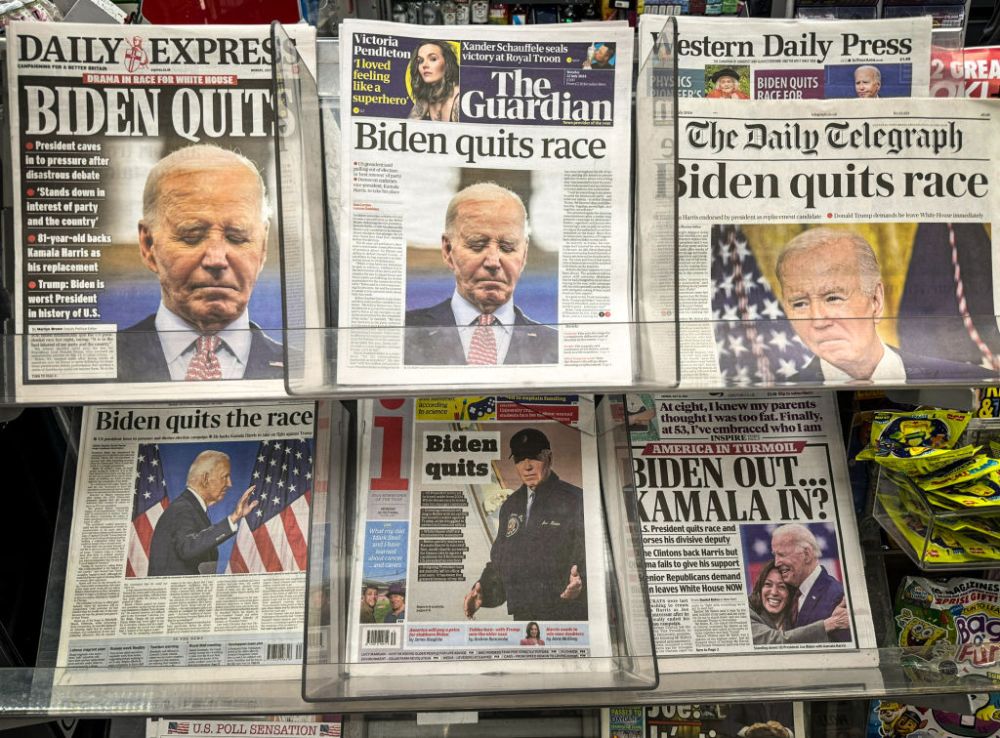

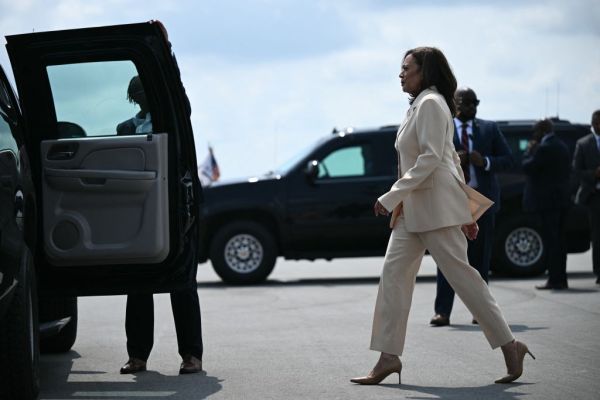
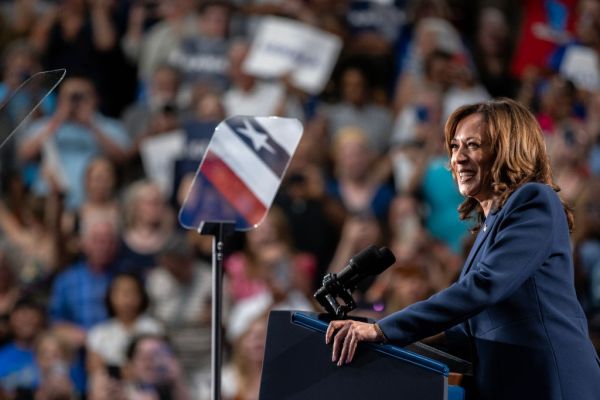
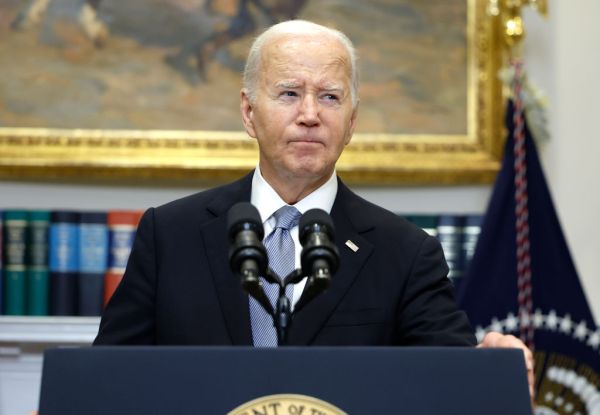

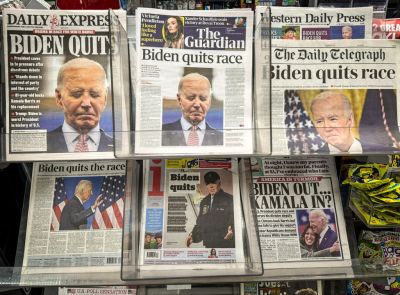
Please note that we at The Dispatch hold ourselves, our work, and our commenters to a higher standard than other places on the internet. We welcome comments that foster genuine debate or discussion—including comments critical of us or our work—but responses that include ad hominem attacks on fellow Dispatch members or are intended to stoke fear and anger may be moderated.
With your membership, you only have the ability to comment on The Morning Dispatch articles. Consider upgrading to join the conversation everywhere.